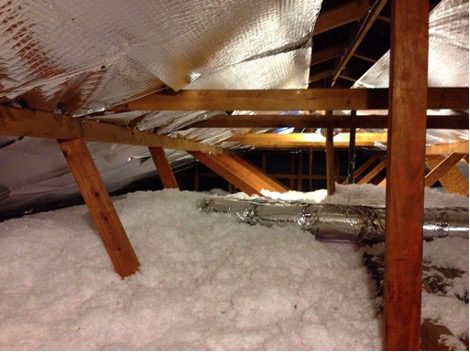What Does It Mean to Have an Air-Tight Home?

When it comes to ensuring your home is energy-efficient and comfortable, one of the key factors to consider is the air-tightness of your home. But what does it actually mean to have an air-tight home, and why is it important? Let’s explore this concept and how it impacts your home’s energy efficiency, comfort, and overall health.
Understanding an Air-Tight Home
An air-tight home refers to a dwelling that is sealed properly, preventing unwanted air from entering or escaping. This is achieved through a combination of materials, construction techniques, and home features that minimize gaps, cracks, and leaks around the building envelope—the physical barrier between the indoor and outdoor environments.
For a home to be truly air-tight, it must have a well-sealed foundation, walls, windows, doors, and attic. Even the smallest cracks or leaks can let in drafts, moisture, and pollutants that compromise comfort and increase energy bills.
Why Does an Air-Tight Home Matter?
- Improved Energy Efficiency
When your home is air-tight, the HVAC system doesn’t have to work overtime to compensate for heat or cool air escaping through gaps and leaks. Sealing these areas allows your heating and cooling systems to run more efficiently, saving you money on energy bills.
In fact, studies have shown that homes with proper air sealing can save up to 30% on energy costs annually. This is a significant amount that adds up over time.
- Enhanced Comfort
Air leaks can cause hot or cold spots throughout your home, making it difficult to maintain a consistent temperature. An air-tight home provides even heating and cooling, keeping every room at a comfortable temperature.
It also prevents drafts that might make certain areas uncomfortable during the colder months, reducing the need for extra layers or space heaters.
- Better Indoor Air Quality
A well-sealed home reduces the infiltration of outdoor pollutants such as pollen, dust, and even allergens from mold. It also minimizes the potential for moisture-related issues, such as condensation or mold growth, which can negatively affect air quality.
Additionally, controlling the flow of fresh air into the home means you can have a better filtration system in place to control humidity and other pollutants that might make their way inside.
- Protection from Pests
Air leaks can be a way for unwanted pests, such as rodents and insects, to gain access to your home. By sealing these gaps, you can protect your home from infestations and reduce the need for pesticides or other costly pest control measures.
How to Achieve an Air-Tight Home
Achieving an air-tight home starts with a thorough inspection of your property. Here are some key steps to consider:
- Air Sealing: The first step in creating an air-tight home is sealing cracks, gaps, and joints around doors, windows, and other potential leak points. Caulking and weather stripping can go a long way in closing these openings.
- Insulation: Proper insulation helps to reduce air flow and heat loss, contributing to a more air-tight home. Insulation should be installed in attics, walls, basements, and crawl spaces to create an effective barrier.
- Ventilation: While air-tightness is essential, proper ventilation is also necessary to ensure the home remains healthy and free of moisture buildup. A balanced ventilation system, such as an energy recovery ventilator (ERV), can bring in fresh air without compromising the air-tight seal.
- Professional Assessment: A professional contractor can perform a blower door test to assess the air-tightness of your home and pinpoint areas that need improvement. This can ensure that your home is as energy-efficient as possible.
Conclusion
Having an air-tight home is more than just a trend—it’s a practical solution to energy savings, comfort, and improved indoor air quality. By sealing air leaks and insulating your home properly, you’ll not only reduce energy costs but also create a healthier, more comfortable living space. If you’re looking to improve the air-tightness of your home, Koala Insulation of Baltimore is here to help with professional services tailored to your needs. Reach out today at (667) 241-9099 to find out how we can help you achieve the perfect balance of energy efficiency and comfort.
Find Your Location


Get a quote


